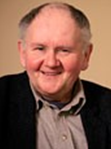报告时间:9月23日(星期五)上午10:00-12:00 
报告地点:信息楼3楼学术报告厅310
报 告 人:Krzysztof Galkowski,波兰绿山大学(University of Zielona Gora)教授
报告题目:Iterative Learning Control Laws with Full Dynamics
内容简介:Iterative learning control (ILC) is a technique for controlling systems operating in a repetitive (or pass-to-pass) mode with the requirement that a reference trajectory defined over a finite interval is followed to a high precision. Examples of such systems include robotic manipulators that are required to repeat a given task, chemical batch processes or, more generally, the class of tracking systems. Since the original work of Arimoto in the mid 1980s, the general area of ILC has been the subject of intense research effort. In ILC, a major objective is to achieve convergence of the trial-to-trial error and often this has been treated as the only one that needs to be considered, but then, it is possible that this could lead to unsatisfactory performance along the trial. These can be avoided when noting the clear repetitive (two-dimensional, 2D) structure of the ILC process.
This lecture presents an extended approach when an ILC controller is alone a repetitive process and has its own internal 2D dynamics. The ILC controller design is provided as well an application to the gantry robot, together with experiments. There are comparisons with the “static” ILC controller.
报告时间:9月28日(星期三)上午8:00-12:00
报告地点:信息楼3楼学术报告厅310
报告题目:2D systems theory applied to iterative learning control of spatio-temporal dynamics
内容简介:Iterative learning control (ILC) is a technique for controlling systems operating in a repetitive (or pass-to-pass) mode with the requirement that a reference trajectory defined over a finite interval is followed to a high precision. Examples of such systems include robotic manipulators that are required to repeat a given task, chemical batch processes or, more generally, the class of tracking systems. Since the original work of Arimoto in the mid 1980s, the general area of ILC has been the subject of intense research effort. In ILC, a major objective is to achieve convergence of the trial-to-trial error and often this has been treated as the only one that needs to be considered, but then, it is possible that this could lead to unsatisfactory performance along the trial. These can be avoided when noting the clear repetitive (two-dimensional) structure of the ILC process. Most research in this area is concentrated in applications to ordinary dynamic (temporal) systems that are governed by Ordinary Differential/Discrete Equations.
This lecture presents basic ideas of applying the ILC idea to spatio-temporal systems, that are governed by Partial Differential Equations. The results are illustrated by the results for the micro electrostatic bridge (bar vibrations) control and heat transfer problems.
作者简历:Dr. Krzysztof Galkowski received his Ph.D. degrees from Technical University of Wroclaw in 1977. After a twenty-year stint at the University of Wroclaw, he joined the University of Zielona Gora in 1996, where he is currently a Professor of Institute of Control and Computation Engineering. Professor Galkowski is an inventor of the effective and still being generalised by other researchers, method of the construction of a state-space realization for the multidimensional (n-variate) transfer function matrices, called Elementary Operation Algorithm. His research interests include multidimensional (nD) systems and repetitive processes-theory and applications, Iterative Learning Control and related numerical methods. He is an author/editor of four monographs/books and over 100 papers in the leading peer reviewed journals and over 180 in the proceedings of international conferences. He has given numerous invited plenary talks for international conferences and in many universities (Europe, USA, Canada, China, Australia, India). He, as well, has prepared numerous special issues for leading journals as IJC, MDSSP and others. He has a strong international co-operation with the Universities of Southampton, UK; the universities of Wuppertal, Rostock and Erlangen-Nurnberg, Germany; University of Hong Kong; University of Poitiers, France; University of Thessaloniki, Greece; East China University of Science and Technology, Shanghai; Harbin Institute of Technology, Harbin; Central South University, Changsha; China University of Geosciences, Wuhan, and many others.
Dr. Krzysztof Galkowski is an associate editor for IET Control Theory and Applications, and a member of editorial board of International Journal of Multidimensional Systems and Signal Processing and International Journal of Control. He served as a member of IPC for several international conferences and co-organised a series of international workshops.

